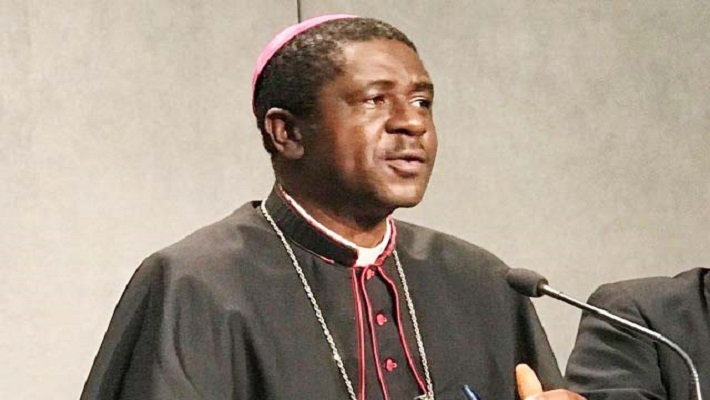By Arnold Neliba
ROME, SEPTEMBER 29, 2023 (CISA)- Archbishop Andrew Nkea has described the Anglophone Crisis of Cameroon as a crisis of culture and belonging, debunking the misinformation around it as a language crisis between the French and English-speaking regions of Cameroon.
“Many people think, oh, why are you quarrelling over foreign languages? No. It has nothing to do with languages. It is a matter of culture, of tradition, and it is a matter of belonging. Some Cameroonians from the English-speaking parts don’t feel that they adequately belong to Cameroon. They feel they are not accepted because they are the minority 20% of the country. They don’t feel they are accepted by the 80%, so this is where the discontentment comes from,” the archbishop of Bamenda said.
“Every Cameroonian wants to feel that they belong to Cameroon. You respect me as I am, and I respect you as you are. This is the Anglophone crisis. It can easily be misunderstood as a crisis of language. It is a crisis of culture and a crisis of belonging,” he told Vatican News.
Archbishop Nkea who is a delegate to the October Synod in Rome, stressed that the church will continue playing the reconciliatory role, bringing together the two parties; the Cameroon’s Armed Forces and Ambazonian separatist rebel groups.
“There are indeed problems, but the way to solve these is not by guns. It is not by war. We don’t solve problems by fighting and killing each other. We solve our problems through peaceful means, dialogue, searching for understanding, and looking for a middle way. This has always been our position as Church,” he emphasized, committing that the Church will continue playing its prophetic role in denouncing killings and human rights violations.
He says the church does not “sit on the fence, but at the same time, we don’t want to take sides. We call a spade a spade. But I can never go out to preach independence or other things. I always preach peace. Secondly, we as a Church have always stood for reconciliation. We have also always advocated for the fact that children should go back to school, and because of this, we have tried to work very closely with the displaced -people displaced from their homes and villages. Caritas is taking a lot of care of some of them. We have also established child-friendly spaces for children driven from their homes because of the conflict. We are assisted in this by UNICEF.”
The two conflicting regions in Cameroon have been at war for more than five years, as separatists in the country’s English-speaking regions fight for autonomy.

